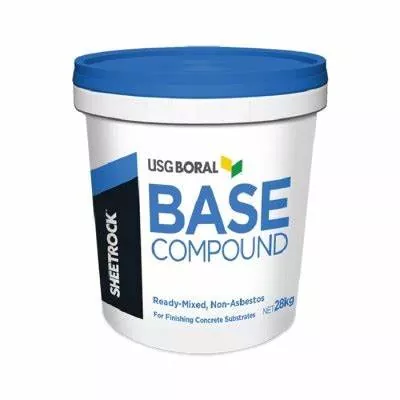
- English
- 简体中文
- Español
- Português
- русский
- Français
- 日本語
- Deutsch
- tiếng Việt
- Italiano
- Nederlands
- ภาษาไทย
- Polski
- 한국어
- Svenska
- magyar
- Malay
- বাংলা ভাষার
- Dansk
- Suomi
- हिन्दी
- Pilipino
- Türkçe
- Gaeilge
- العربية
- Indonesia
- Norsk
- تمل
- český
- ελληνικά
- український
- Javanese
- فارسی
- தமிழ்
- తెలుగు
- नेपाली
- Burmese
- български
- ລາວ
- Latine
- Қазақша
- Euskal
- Azərbaycan
- Slovenský jazyk
- Македонски
- Lietuvos
- Eesti Keel
- Română
- Slovenski
- मराठी
What is a Base Compound?
2025-01-04
In the realm of chemistry, the term "base" refers to a class of compounds that play an essential role in a variety of chemical processes. Understanding what a base compound is, its characteristics, and its significance is fundamental for students, professionals, and enthusiasts of science.

Definition of a Base
A base is a chemical substance that can accept hydrogen ions (protons) or, more broadly, donate a pair of valence electrons. Bases are often identified by their ability to neutralize acids, resulting in the formation of water and a salt. The concept of a base is central to the study of acid-base reactions, which are vital in both theoretical and applied chemistry.
Bases can be categorized under several definitions, with the most prominent being:
- Arrhenius Definition: A base is a substance that increases the concentration of hydroxide ions (OH⁻) when dissolved in water.
- Brønsted-Lowry Definition: A base is a proton acceptor.
- Lewis Definition: A base is an electron pair donor.
Each definition broadens the scope of what can be considered a base, making the term versatile across various chemical contexts.
Common Properties of Bases
Base compounds share several characteristic properties:
1. Taste: Bases typically have a bitter taste. However, tasting chemicals is not recommended in laboratory settings.
2. Texture: Many bases feel slippery to the touch, akin to soap.
3. pH Levels: Bases have pH values greater than 7, with stronger bases approaching a pH of 14.
4. Indicators: Bases change the color of pH indicators. For instance, they turn red litmus paper blue.
5. Reactivity: Bases react with acids in neutralization reactions and can also interact with certain metals, forming hydrogen gas.
Examples of Base Compounds
- Sodium Hydroxide (NaOH): Commonly known as lye or caustic soda, it is widely used in soap making and industrial cleaning.
- Ammonia (NH₃): A household cleaning agent and a precursor in fertilizer production.
- Calcium Hydroxide (Ca(OH)₂): Also called slaked lime, it is used in construction and water treatment.
- Magnesium Hydroxide (Mg(OH)₂): Known as milk of magnesia, it serves as an antacid and laxative.
The Role of Bases in Everyday Life
Bases are indispensable in many industries and daily activities. For example:
- Cleaning: Many household cleaners, including bleach and baking soda, are basic in nature.
- Agriculture: Base compounds like lime help neutralize acidic soils, promoting healthy plant growth.
- Medicine: Antacids relieve stomach acidity by neutralizing excess gastric acid.
- Manufacturing: Bases are crucial in producing paper, textiles, and detergents.
A base compound is more than just a fundamental concept in chemistry; it is a cornerstone of numerous scientific and practical applications. From balancing pH in biological systems to enabling industrial processes, bases are as versatile as they are vital.
Founded in 2012, Shanghai Visa Plastics S&T Co., Ltd. is a comprehensive enterprise integrating the trade of engineering plastics raw materials and the R&D, production and manufacturing of materials. Our main products are ULTEM PEI, NORYL PPO, and LEXAN PC. Visit https://www.visa-plastics.com/ to discover our latest products. If you need assistance, you can get in touch with us at sales@hunter-chem.com.




